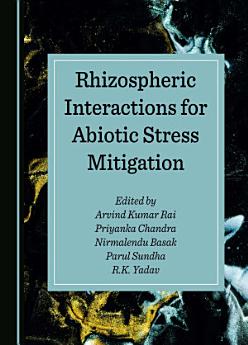Rhizospheric Interactions for Abiotic Stress Mitigation
About this ebook
Crop plants depend on their innate biological systems to adapt to harsh environmental and edaphic circumstances; otherwise, their development, growth, and productivity are negatively impacted. Microorganisms, the most innate dwellers of a wide range of habitats, have a remarkable metabolic capacity to reduce abiotic stressors. Microbial relationships with plants are thought to be the natural partners that regulate systemic and local defence mechanisms in response to unfavourable external circumstances, as they are an essential component of the living ecosystem. In order to adapt to such challenging circumstances, various mechanisms inside the plant cellular system that govern plant-microbe interactions must be investigated.
This book will cover the multifaceted beneficial plant-microbe interactions including plant-growth-promoting rhizobacteria (PGPR) symbiosis; and AMF, PGPRs for abiotic stress mitigation and enhancing crop performance.
About the author
Dr Priyanka Chandra is a scientist at ICARâCSSRI. Her research focusses on native mycorrhiza of salt affected soils and their assessment for improving P nutrition under salt stress.
Dr Nirmalendu Basak is a Senior Scientist at ICARâCSSRI. He is involved in the research of reclamation of alkali soil with different mineral, chemical and biological amendments.
Dr Parul Sundha is a scientist at ICAR-CSSRI. She works on the organic and chemical amendments and their ecotoxicological impacts for reclamation of sodic soils.
Dr R.K. Yadav is Director at ICARâCSSRI. He is engaged in research of characterization and classification of salt affected soils and poor-quality water for their productive utilization in agriculture.




